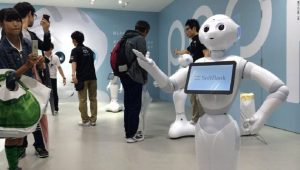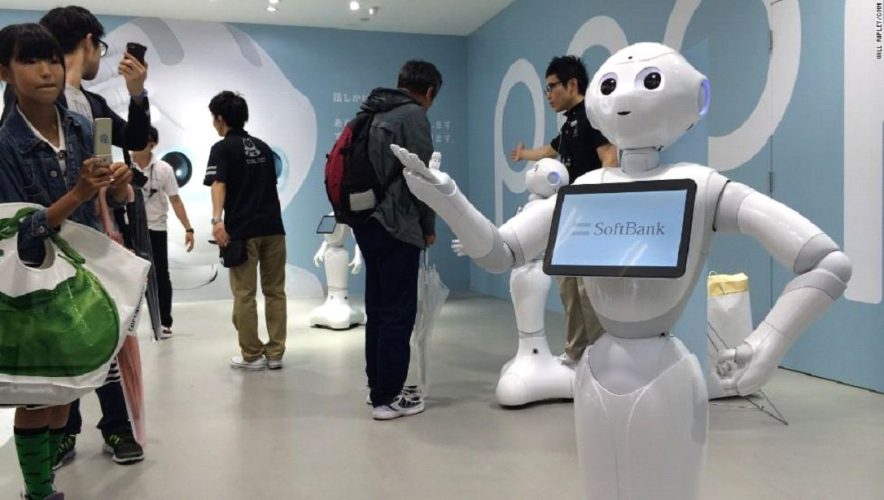By Sarah-Claire Jordan
 Japan has been at the center of technological developments for some time now, with each advancement bringing something that the whole world will certainly want a piece of. Robotics in particular have been somewhat of a national obsession, one that seems to be bearing fruit in the form of some of the best robotic technology in the world. That is part what keeps Japanese technology five steps ahead of the rest of the world
Japan has been at the center of technological developments for some time now, with each advancement bringing something that the whole world will certainly want a piece of. Robotics in particular have been somewhat of a national obsession, one that seems to be bearing fruit in the form of some of the best robotic technology in the world. That is part what keeps Japanese technology five steps ahead of the rest of the world
Since as far back as the 1600s, Japan has toyed with the idea of machines meant to emulate and interact with humans. Some of the first examples of this are “karakuri”, which were mechanical puppets used for entertainment and even serving tea to people at parties and events. They were simple compared to what we see now, but at the time they were extremely innovative and led to the robots we see today in real life and have seen in movies, comics, and TV shows.
Even when using robots as a part of a fictional storyline, Japanese screenwriters tend to go above and beyond in terms of dreaming up technologies and situations that seem all too real. A good example of this is the film Ghost in the Shell, which dealt with the fate of humanoid robots that became sentient. This is an all too real concern for some people, that technology and artificial intelligence will become too smart for its own good, and for the good of the human race.
One thing many of these robots, fictional or real, have in common is that they are meant to interact with humans. In order to do so, communication must be top-notch, which means going beyond simply translating text properly. If a robot is to act as a companion and helper to humans, as Pepper, a robot created by a Japanese technology company, does, then they must be able to understand emotion, social cues, tone, and be able to relay them back to the humans they are with.
Pepper is a great example of what Japanese technology is capable of. Using a computer system called “Watson” that was originally developed by IBM to play Jeopardy, Pepper is a robot created by SoftBank that is meant to work among and for humans. Watson allows Pepper to not only speak and understand many different languages, but to also capture and correctly interpret the nuances that come with human language. Watson itself is so good at dealing with human language that it can even put on fake accents in a joking manner.
Some language professionals are a bit worried that these advances in technology, specifically multilingual robots like Pepper, could mean they will be out of a job in the future. This sort of goes along with the artificial intelligence dilemma, that if we create robots that are too smart, humans won’t have any way to make a living anymore. However, as we have seen in the past few decades especially, new technology tends to more than make up for the jobs it replaces by creating new positions. Translators and localization specialists will still have work to do, though it might be in updating the language software of the latest robotic companion on the market.




